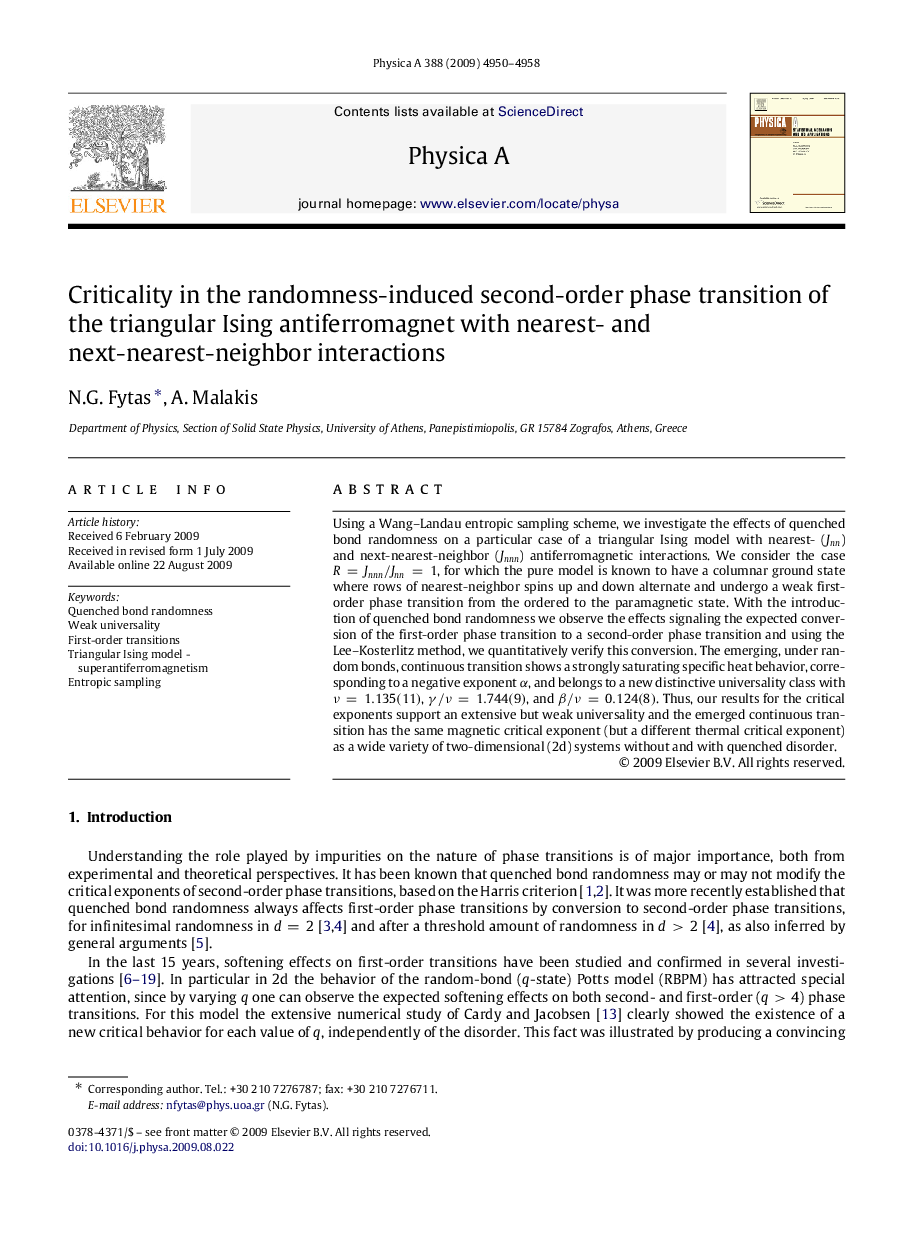| کد مقاله | کد نشریه | سال انتشار | مقاله انگلیسی | نسخه تمام متن |
|---|---|---|---|---|
| 978420 | 933279 | 2009 | 9 صفحه PDF | دانلود رایگان |

Using a Wang–Landau entropic sampling scheme, we investigate the effects of quenched bond randomness on a particular case of a triangular Ising model with nearest- (JnnJnn) and next-nearest-neighbor (JnnnJnnn) antiferromagnetic interactions. We consider the case R=Jnnn/Jnn=1R=Jnnn/Jnn=1, for which the pure model is known to have a columnar ground state where rows of nearest-neighbor spins up and down alternate and undergo a weak first-order phase transition from the ordered to the paramagnetic state. With the introduction of quenched bond randomness we observe the effects signaling the expected conversion of the first-order phase transition to a second-order phase transition and using the Lee–Kosterlitz method, we quantitatively verify this conversion. The emerging, under random bonds, continuous transition shows a strongly saturating specific heat behavior, corresponding to a negative exponent αα, and belongs to a new distinctive universality class with ν=1.135(11)ν=1.135(11), γ/ν=1.744(9)γ/ν=1.744(9), and β/ν=0.124(8)β/ν=0.124(8). Thus, our results for the critical exponents support an extensive but weak universality and the emerged continuous transition has the same magnetic critical exponent (but a different thermal critical exponent) as a wide variety of two-dimensional (2d) systems without and with quenched disorder.
Journal: Physica A: Statistical Mechanics and its Applications - Volume 388, Issue 24, 15 December 2009, Pages 4950–4958